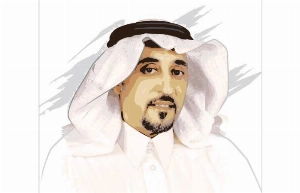Media reports around the world have circulated news about dramatic reforms in Saudi Arabia, which have altered an unjust situation that women have faced because of some extremist views.
Recent decisions are a continuation of a series of important and fundamental reforms adopted by the Kingdom based on tolerance and acceptance of the other, the fight against extremism, the the adoption of moderate and religious discourse and respect and cultural openness to the world and its nations, peoples, arts and literature.
These “local” Saudi moves have important implications for the region as a whole because of the Kingdom’s influence in the Middle East. In short, the Arabian Gulf lies between two divergent projects: Saudi Arabia versus Iran.
The Saudi project embraces anti-terrorism and is culturally, intellectually, religiously, socially and economically reformative and open to the world. On the other hand, the Iranian project is religiously extremist, sectarian and fanatic, promotes violence and terrorism, is hostile to neighboring countries and supports terrorist infidels.
Indeed, since 1979 many Iranians have left the country to escape from repression, militancy and tyranny. The regime of Iran no longer resembles the great old Iran itself, which gave birth to Ibn Al-Muqaffa, Omar Al-Khayyam, Sibawayh, Jalaluddin Rumi, Attar, Suhrawardi and Isfahani.
In the Arabian Gulf today there is competition between the Saudi project with its reforms that surprise and please many and the Iranian project, which is full of negative news, and supports genocide regimes and terrorist gangs and is based on hateful sectarianism. Saudi Arabia is the Qibla of all Muslims and its King holds the distinguished title of Custodian of the Two Holy Mosques, while the country’s flag features the word of monotheism that unites all Muslims.
The Kingdom represents the practical expansion of horizons and the adoption of inclusive views, and whoever follows the development of the great pilgrimage projects is fully aware that Saudi Arabia’s main concern is the comfort of Muslims so that Haj services improve year after year.
The Saudi and Iranian projects are completely different, and the project that will triumph will have the greatest impact on the region and the world. The late great Iranian filmmaker Abbas Kiarostami described Iran and its regime as “suffocating” and said: “I am creative and they are strangling me.”
Compare the Gulf today with the way it was before 1979 and you will see the difference. The Saudi project with its growing features is a light in Iran’s dark tunnel with its sectarian project in the region.
